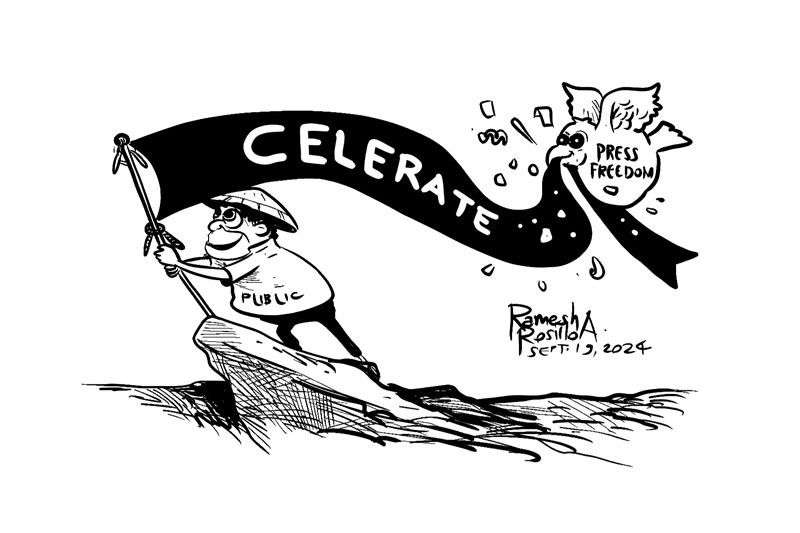EDITORIAL — Still worth celebrating

As with every year’s celebration of Press Freedom Week, there are always two questions that come to mind, or questions that those outside in the media profession often like to ask us: First is if the press actually still has its freedom. Second is if this freedom --provided the answer to the first question is positive-- is still worth celebrating.
As to freedom of the press; we say yes, we still have it. Compared to the dark days of martial law when any negative report about the dictatorship was censored, we actually enjoy journalistic freedom, ironically under the son of the very same man who enabled those dark days in our history.
We only need to look at news reports to confirm no one is breathing down the necks of reporters and editors as they work on stories; we don’t always paint a rosy picture of the situation here in the Philippines, we tell it as it is, ugly warts and all. This goes without saying we occasionally call out the authorities for any observed shortcomings or lapses.
As to celebrating this freedom; yes, it’s worth celebrating. Any form of freedom should be celebrated, especially one that helps strengthen a democracy. We need only to look at what autocratic nations do to their press; they get muzzled and controlled, doomed to broadcasting or printing only what they are told.
Another thing to celebrate is the fact that journalism continues to thrive. We are aware that for several years, naysayers have been predicting the death of journalism or of the press. They attribute it to factors like the more frequent use of artificial intelligence, or the rise of social media networks that now serve as “trusted” news sources, or just the slowly dwindling interest of readers, especially the younger ones.
But we know better. As mentioned in our previous Press Freedom Week editorial, no AI, no matter how good, can ever replace human skill when it comes to writing and moving people with words. And that those discerning enough will always go to trusted and proven news sources over social media sites.
And that people, as they get older and more discerning, will eventually turn to news and other similar informative and substantial content after they have had their fill of the inanity they normally scroll through.
- Latest





















